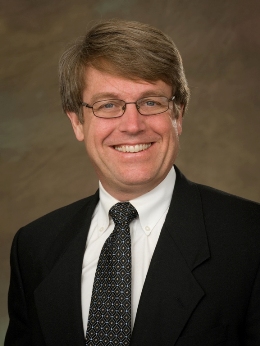 To say that the 2013 Michigan Library Association Directors Summit was a transformative event in my life would be hyperbole. But it would not be too much to say that my notion of how best to lead a nonprofit organization was forever altered. I learned that our usual way of designing the services we offer is upside down.
To say that the 2013 Michigan Library Association Directors Summit was a transformative event in my life would be hyperbole. But it would not be too much to say that my notion of how best to lead a nonprofit organization was forever altered. I learned that our usual way of designing the services we offer is upside down.
Like every nonprofit agency, we have a mission that describes the good we want to see in the world. Our mission helps us define the things we do for our members. The staff and Board work together to craft the products and service that fit our mission, and once created, we promote and market them. It is an organizational model that generally works. Except when it doesn’t.
When MCLS was created through the combination of the Michigan Library Consortium and INCOLSA, each organization brought unique service offerings to the merger. The expectation among Board and management was that the new organization would continue the services that were successful. Gradually, we would coalesce from two separate states into a single region offering the same set of innovative services from the tip of the Upper Peninsula to the banks of the Ohio River. What we failed to reckon on were librarians in both states saying “What is this new organization, and what have you done with the old one?”
In other words, we did not recognize that it is our members who determine our agenda, not the other way around. When nonprofits forget who is really in charge, they can quickly lose their way and their relevance. The worst case is that the agency becomes so lost and estranged from its members that it loses relevance and simply disappears. There is another way. The organization can turn outward and engage in meaningful ways with the community of users and other stakeholders to tap into the deepest aspirations of the community.
In a nutshell, that’s what I learned that morning at the Directors Summit.
The man delivering the message was Rich Harwood, founder of The Harwood Institute. Rich is a dynamic, charismatic speaker with a vision for creating a more respectful civic life in the country. The process that he advocates helps guide nonprofit and civic agencies to reconnect with their communities. You can get a small flavor of Rich’s passion from this video.
With the methodology that Rich and his staff at The Harwood Institute have developed, it is possible to create authentic community engagement and a foundation for change. This is change that stems from deeply-felt, bottom-up aspirations of the community and not top-down service delivery from an organization’s management and Board.
The Harwood process does not lead to quick change. It is a months or even years long endeavor. The process starts with listening. It is us at MCLS listening to you talk about your hopes and dreams for what the library community can be, what all of us can achieve together, what is possible when we decide to act together and not just alone.
To start that listening process, we have begun to hold community conversations around our region. We began with six conversations in Indiana in fall 2013. The next step is to schedule conversations in Michigan, then a few more in Indiana. By the end of the year, we expect to have a pretty good idea about your aspirations for the library community in your state.
The process is simple. We send invitations to librarians in libraries of sizes and types all over the state. You are asked to choose and date, time, and place, and we will register you. We will find sites throughout the state so that you can find a meeting site close to you. On the day you selected, you arrive at the site with ten or twelve others from libraries in the area. Each meeting is a facilitated conversation that lasts 90 minutes to two hours. We will ask participants a series of open-ended questions that are designed to stimulate discussion, while focusing on positive aspirations. We expect there will be six or eight conversations in each state. When we have completed the round of conversations, we will collate the results and share them with you.
This is an ongoing process so we are likely to schedule more conversations to make sure we got it right the first time, which will also allow us to maintain our engagement with you. From there we will create the change that you want to see and that will make the biggest difference for the entire library community.
We know that we cannot achieve profound change on our own. We will require many partners to get this done. In Michigan, we are part of a broad coalition of library service agencies, including the Cooperative Directors Association, the Library of Michigan, and the Michigan Library Association. In Indiana, we have begun talking with the Indiana Library Federation about the Harwood process and will be on the agendas of two ILF District Conferences this spring.
We are very excited about applying the principles that underlie the Harwood Institute process. When you receive your invitation, please plan to join us for one of the community conversations. I think you will find it well worth the investment of your time.
-Randy Dykhuis



